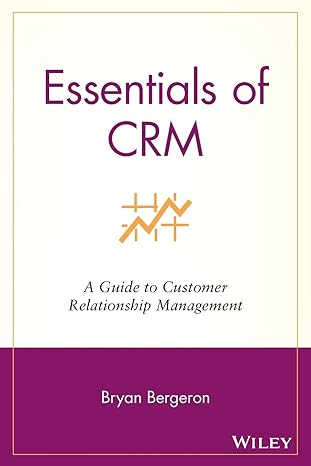Question
On the balance sheet, assets minus liabilities equal equity. The equity on the balance sheet is known as the companys book value. The book value
On the balance sheet, assets minus liabilities equal equity. The equity on the balance sheet is known as the companys book value. The book value of the company is different than a companys market value (market capitalization or market cap). The market value of a company is determined by multiplying the companys number of shares of common stock outstanding and multiplying that by the companys stock price. Presently for U.S. companies, median book value is about one-half of market value, yielding a 2.0 market-to-book ratio. This means that the market draws on additional information than that provided in the companys financial statements in valuing companies stock.
There are many things the market considers when valuing a company's stock that are not included on the company's financial statements. For example, Generally Accepted Accounting Principles (GAAP) prohibits a company from having employees listed as assets on the balance sheet. This is because placing a dollar value on employees is deemed to be too subjective a measure. Steve Jobs was never listed on Apple's Balance Sheet, but investors surely considered his vision and marketing talent when valuing the Company.
List two other reasons as to how the application of Generally Accepted Accounting Principles (GAAP) in financial statement preparation can cause a difference between a companys book value and its market value.
Step by Step Solution
There are 3 Steps involved in it
Step: 1

Get Instant Access to Expert-Tailored Solutions
See step-by-step solutions with expert insights and AI powered tools for academic success
Step: 2

Step: 3

Ace Your Homework with AI
Get the answers you need in no time with our AI-driven, step-by-step assistance
Get Started


